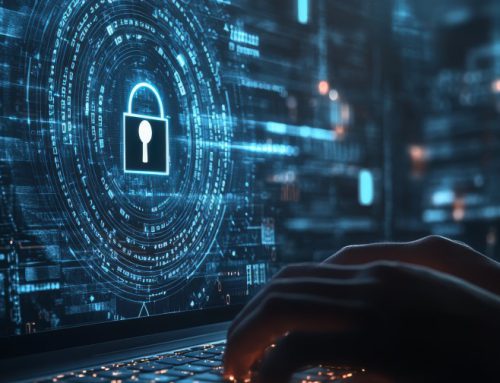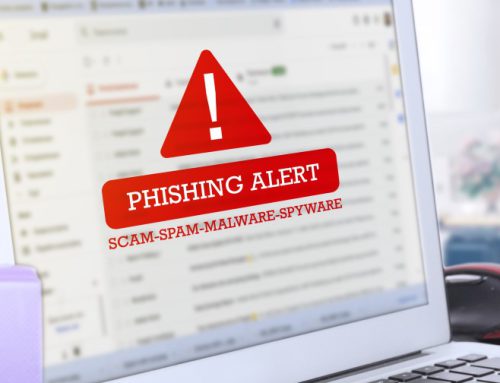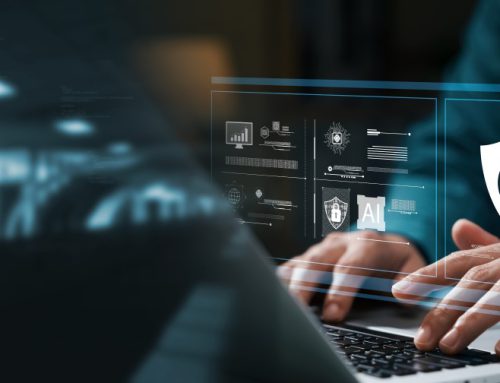The holiday season is a time for celebration, gift-giving, and spending time with loved ones. But as we get caught up in the festive spirit, it’s important to remember that cybercriminals don’t take holidays—they thrive during this time. With an increase in online shopping, charitable donations, and digital communications, the risk of cyber threats skyrockets during Christmas. Here’s how to stay safe and protect your personal and financial information during the holiday season.
1. Beware of Phishing Scams
Cybercriminals often send fake emails that appear to come from legitimate companies, offering “too good to be true” holiday deals or tracking links for packages you didn’t order. These phishing emails are designed to trick you into clicking on malicious links or providing sensitive information.
How to Protect Yourself:
- Be cautious of unsolicited emails, especially those that ask for personal information or immediate action.
- Double-check the sender’s email address—look for small typos or suspicious URLs.
- Avoid clicking on links or downloading attachments from unknown sources. Instead, go directly to the retailer’s website by typing their URL into your browser.
2. Shop on Secure Websites
Online shopping surges during the holidays, making it prime time for cybercriminals to set up fake websites designed to steal your payment information. Always ensure the websites you shop on are legitimate and secure.
How to Protect Yourself:
- Look for the “https://” and the padlock symbol in the address bar before entering any payment details.
- Stick to well-known, trusted retailers. If you’re shopping on a lesser-known site, do a quick search for reviews to ensure it’s legitimate.
- Use credit cards or secure payment methods like PayPal, which offer better fraud protection than debit cards.
3. Use Strong Passwords and Enable Two-Factor Authentication
Cybercriminals often target weak passwords during this busy season. Using the same password across multiple accounts can put all your online accounts at risk if one gets compromised.
How to Protect Yourself:
- Use unique, complex passwords for every online account. Consider using a password manager to generate and store them securely.
- Enable two-factor authentication (2FA) wherever possible, especially for online banking, shopping accounts, and email. This adds an extra layer of security by requiring a second form of verification.
4. Be Cautious with Public Wi-Fi
Shopping on the go or while traveling can lead to using public Wi-Fi networks, which are often unsecured. Cybercriminals can easily intercept your data on public networks, including login credentials and payment information.
How to Protect Yourself:
- Avoid entering personal information or making online purchases over public Wi-Fi networks.
- If you must use public Wi-Fi, use a Virtual Private Network (VPN) to encrypt your connection.
- Disable automatic Wi-Fi connections on your devices to prevent accidentally connecting to an unsecured network.
5. Watch Out for Fake Charities and Donation Scams
The season of giving often inspires many of us to donate to charitable causes. Unfortunately, scammers take advantage of this generosity by setting up fake charity websites or sending out fraudulent donation requests.
How to Protect Yourself:
- Research any charity before donating to ensure it’s legitimate. Look for the organization on reputable sites like Charity Navigator or GuideStar.
- Avoid clicking on donation links in unsolicited emails or messages. Instead, visit the charity’s official website directly.
- Be cautious of emotional pleas that urge you to act immediately without providing clear details.
6. Update Your Software and Devices
Outdated software and devices are more vulnerable to cyberattacks. During the holiday rush, we might neglect those pesky software update reminders, but keeping your systems updated is a critical step in staying secure.
How to Protect Yourself:
- Regularly update your operating systems, browsers, and antivirus software to ensure you have the latest security patches.
- Enable automatic updates to ensure you never miss a critical security fix.
- Make sure all your smart devices, such as home assistants, smart TVs, and other IoT gadgets, are also updated with the latest firmware.
7. Monitor Your Accounts
With all the holiday spending, it can be easy to miss suspicious activity in your financial accounts. Cybercriminals often test small fraudulent charges before making bigger transactions.
How to Protect Yourself:
- Regularly check your bank and credit card statements for any unauthorized activity.
- Set up alerts with your bank or credit card company to notify you of any suspicious transactions.
- If you notice any fraudulent activity, report it immediately to your financial institution and freeze your accounts if necessary.
The holidays should be a time of joy and relaxation, not stress over potential cyber threats. By staying vigilant and following these cybersecurity best practices, you can enjoy a worry-free holiday season. Keep your personal information, finances, and loved ones safe from cybercriminals, and spread the word to help others do the same.
From all of us at E-Tech, we wish you a safe and secure holiday season!











